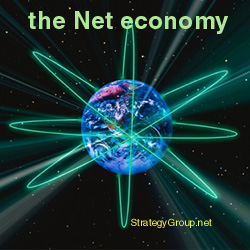 By Tom Randall – If animals were stocks, the market would be crashing.
By Tom Randall – If animals were stocks, the market would be crashing.
To say the index of animals is underperforming humans is an understatement. More than half of the world’s vertebrates have disappeared between 1970 and 2010.
Humans are currently drawing more from natural resources than the Earth is able to provide. It would take about 1.5 planet Earths to meet the present-day demands that humanity currently makes on nature, according to the WWF (pdf).
If all the people of the world had the same lifestyle as the typical American, 3.9 planet Earths would be needed to keep up with demand. more> http://tinyurl.com/mdb9wjg

 By Ryan McNeill, Deborah J. Nelson and Duff Wilson – Since 2001, water has reached flood levels an average of 20 days or more a year in Annapolis, Maryland; Wilmington, North Carolina; Washington, D.C.; Atlantic City, New Jersey; Sandy Hook, New Jersey; and Charleston, South Carolina.
By Ryan McNeill, Deborah J. Nelson and Duff Wilson – Since 2001, water has reached flood levels an average of 20 days or more a year in Annapolis, Maryland; Wilmington, North Carolina; Washington, D.C.; Atlantic City, New Jersey; Sandy Hook, New Jersey; and Charleston, South Carolina. By Ann R. Thryft – The report, “
By Ann R. Thryft – The report, “ By Mark Leonard – The burger chain was celebrated in the 1990s by the journalist Thomas Friedman’s “Golden Arches theory of conflict prevention,” which argued that the spread of McDonald’s around the world would bring an end to war. But almost 25 years after a McDonald’s restaurant opened in Moscow, it seems that deep interdependence has not ended conflict between great powers – it has merely provided a new battlefield for it.
By Mark Leonard – The burger chain was celebrated in the 1990s by the journalist Thomas Friedman’s “Golden Arches theory of conflict prevention,” which argued that the spread of McDonald’s around the world would bring an end to war. But almost 25 years after a McDonald’s restaurant opened in Moscow, it seems that deep interdependence has not ended conflict between great powers – it has merely provided a new battlefield for it.


You must be logged in to post a comment.